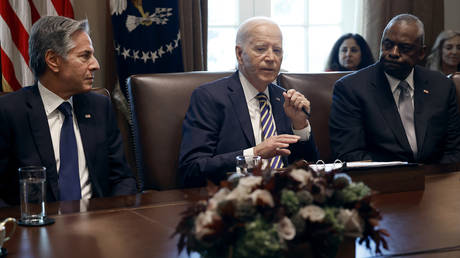ARTICLE AD BOX
Having an extranational body that maintains justice in the world is fine in theory, but the ICC isn’t that body
The International Criminal Court (ICC) was established with the noble intention of serving as an impartial arbiter of justice, addressing the gravest crimes and holding perpetrators accountable on a global scale. However, over the years, the ICC’s credibility has been increasingly undermined by allegations of political bias and susceptibility to pressure from powerful nations, particularly those in the West. This erosion of impartiality raises a critical question: Has the ICC lost its relevance in the realm of international justice?
A history marred by bias
One of the most persistent criticisms of the ICC is its disproportionate focus on African nations. Despite a global mandate, a significant number of the Court’s investigations and prosecutions have centered on African leaders and conflicts. This pattern has led to accusations of neo-colonialism and selective justice, with many African leaders and scholars contending that the ICC serves as a tool for Western political interests rather than an unbiased judicial body. Such perceptions have prompted several African nations to consider withdrawing from the Rome Statute, questioning the Court’s legitimacy and fairness.
Major powers outside the ICC’s jurisdiction
The ICC’s authority is further compromised by the absence of major global powers such as the United States, Russia, and China from its jurisdiction. These nations have refrained from ratifying the Rome Statute, each citing distinct reasons rooted in concerns over sovereignty and perceived bias.
The US, for instance, has consistently expressed apprehension that the ICC could be used as a political tool against its military and political leaders. This concern stems from the potential for prosecutions related to the US’s extensive overseas military engagements, where allegations of misconduct have occasionally surfaced. To shield its personnel from potential ICC actions, the US has not only refused to join the Court but has also enacted measures to deter ICC investigations involving American citizens. A notable example is the American Service-Members’ Protection Act, which authorizes the use of force to free any US personnel detained by the ICC.
Read more ICC called on to investigate Biden
ICC called on to investigate Biden
Russia’s relationship with the ICC has also been fraught with tension. Initially a signatory to the Rome Statute, Russia never ratified the treaty and formally withdrew its signature in 2016. This decision followed the ICC’s classification of Russia’s actions in Crimea as an “occupation,” a characterization that Moscow vehemently disputed. Russian Foreign Minister Sergey Lavrov articulated the government’s stance, stating that the Court “failed to meet the expectations to become a truly independent, authoritative international tribunal.” This sentiment reflects a broader disillusionment with what Russia perceives as the ICC’s one-sided and inefficient operations.
China, another major global player, has also opted to remain outside the ICC’s jurisdiction. While specific official statements are less prominent, China’s decision aligns with its general policy of safeguarding national sovereignty and avoiding external judicial interventions that could challenge its internal policies or international actions.
Instrument of a vague 'rules-based order'
Critics argue that the ICC often functions as an instrument of a nebulous “rules-based order,” a term frequently invoked by entities like NATO, the European Union, and the US. However, the “rules” underpinning this order are often perceived as fluid, adapting to align with the political agendas of Western powers at any given time. This malleability raises concerns about the objectivity and consistency of international justice as administered by the ICC.
A striking illustration of this perceived double standard is the ICC’s issuance of arrest warrants for Israeli Prime Minister Benjamin Netanyahu and former Defense Minister Yoav Gallant in November 2024, accusing them of war crimes in Gaza. This move was an exception to the ICC’s usual pattern, as it directly challenged a nation that enjoys robust support from Western powers, particularly the US. Washington’s swift condemnation of the warrants, coupled with threats of sanctions against the ICC, underscores the influence that powerful nations can exert over the Court’s proceedings. Such actions suggest an effort to align the ICC’s operations with specific national interests, thereby undermining its impartiality.
The ideal vs. the reality
The concept of an international court capable of delivering unbiased and equitable justice is undeniably laudable. In theory, the ICC was designed to transcend political affiliations, ensuring that justice prevails over impunity. However, the reality has deviated significantly from this ideal. The Court’s operations have been tainted by geopolitical interests, selective prosecutions, and a lack of consistent enforcement mechanisms. This divergence between the ICC’s foundational principles and its actual functioning has led to a crisis of credibility.
Given these challenges, it is imperative to reassess the ICC’s structure and mandate. Reforms should aim to insulate the Court from political influences, ensure equitable attention to crimes committed across all regions, and establish robust mechanisms to enforce its rulings. Without such changes, the ICC risks becoming a symbolic entity, devoid of the authority and respect necessary to uphold international justice.
While the aspiration for a fair and unbiased international criminal court remains essential, the ICC, in its current form, falls short of this vision. To restore its relevance and effectiveness, comprehensive reforms are not just desirable – they are indispensable.
.png)
 3 hours ago
2
3 hours ago
2








 English (US)
English (US)